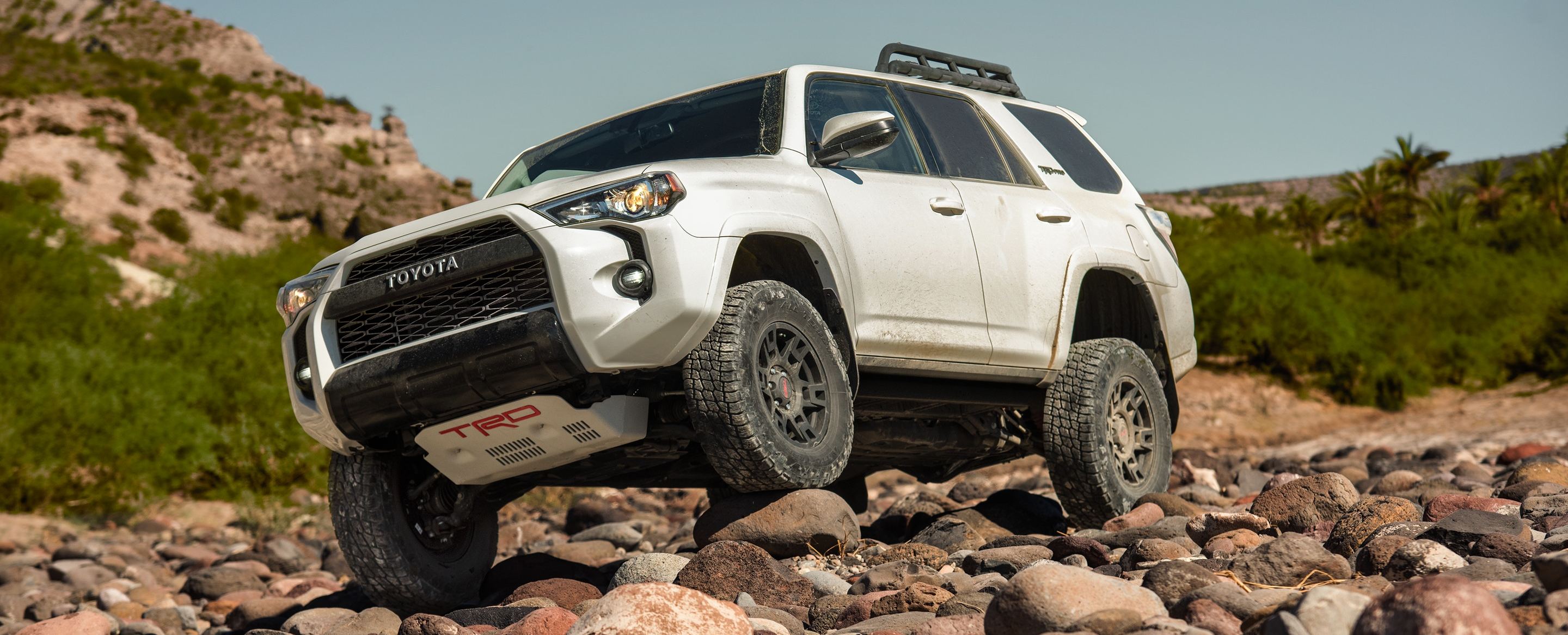The Allure of the Toyota 4Runner: Exploring the Leasing Option
Related Articles: The Allure of the Toyota 4Runner: Exploring the Leasing Option
Introduction
With enthusiasm, let’s navigate through the intriguing topic related to The Allure of the Toyota 4Runner: Exploring the Leasing Option. Let’s weave interesting information and offer fresh perspectives to the readers.
Table of Content
The Allure of the Toyota 4Runner: Exploring the Leasing Option

The Toyota 4Runner, a stalwart in the SUV segment, has consistently attracted drivers seeking a blend of rugged capability, comfort, and reliability. For those seeking a flexible and cost-effective approach to owning this popular vehicle, leasing presents an attractive alternative. This comprehensive guide delves into the nuances of leasing a 4Runner, exploring its advantages, considerations, and the factors that make it a compelling choice for certain individuals and lifestyles.
Understanding the Lease Agreement:
A lease agreement, in essence, is a contract that allows you to use a vehicle for a predetermined period, typically ranging from 24 to 72 months. At the end of the lease term, you return the vehicle to the dealership. This differs significantly from purchasing, where you gain full ownership and can keep the vehicle indefinitely.
Why Lease a 4Runner?
Leasing a 4Runner can be a strategic decision for various reasons:
- Lower Monthly Payments: Compared to financing a purchase, lease payments are generally lower due to only paying for the vehicle’s depreciation during the lease term. This can be a significant advantage, particularly for individuals with budget constraints.
- Access to Newer Models: Leasing allows you to drive a newer vehicle every few years. This can be appealing to those who desire the latest features, technology, and safety advancements.
- Predictable Costs: Lease payments are fixed for the duration of the agreement, providing a predictable budget for transportation. This can be helpful for financial planning and budgeting.
- Potential Tax Benefits: In certain cases, lease payments can be tax-deductible for business purposes. Consulting with a tax professional can clarify potential deductions.
- Reduced Maintenance Costs: Many leases include a maintenance package, covering routine services and repairs, alleviating the financial burden of maintenance.
Factors to Consider Before Leasing a 4Runner:
While leasing offers numerous benefits, it’s crucial to weigh the following factors:
- Mileage Limits: Most leases have mileage restrictions, imposing penalties for exceeding the allotted mileage. If you anticipate driving extensively, leasing might not be the most cost-effective option.
- Wear and Tear: Lease agreements often include stipulations regarding wear and tear. Exceeding the acceptable level of wear can result in additional charges when returning the vehicle.
- End-of-Lease Options: At the end of the lease, you have several options: return the vehicle, purchase it at a predetermined residual value, or lease a new vehicle.
- Financial Implications: Leasing can impact your credit score and might not be suitable for individuals with poor credit history. Additionally, lease payments do not build equity in the vehicle like financing.
Essential Considerations for Leasing a 4Runner:
- Lease Term: The duration of the lease significantly impacts monthly payments. Longer terms generally result in lower payments but increase the total cost of the lease.
- Down Payment: A down payment can lower monthly payments, but it’s not always required. Carefully evaluate the impact of a down payment on your budget.
- Interest Rate: The interest rate influences the overall cost of the lease. Secure a competitive interest rate to minimize financial burden.
- Residual Value: The residual value is the estimated worth of the vehicle at the end of the lease. A higher residual value results in lower monthly payments.
- Maintenance Package: Some leases include a maintenance package, covering routine services like oil changes and tire rotations. Inquire about the scope of coverage and any additional costs.
FAQs about Leasing a 4Runner:
1. Can I customize a leased 4Runner?
While customization options are generally limited with leased vehicles, certain dealerships might offer packages or allow for minor modifications with prior approval. It’s crucial to discuss customization options with the dealership before signing the lease agreement.
2. What happens if I damage a leased 4Runner?
Damage to a leased vehicle can result in repair costs. Depending on the lease agreement and the extent of the damage, you might be responsible for repair costs, a deductible, or both. It’s advisable to have comprehensive and collision insurance to mitigate potential financial risks.
3. Can I terminate a 4Runner lease early?
Terminating a lease early can result in significant financial penalties. Depending on the lease agreement, you might be required to pay the remaining lease payments, a termination fee, or both. Carefully review the lease terms before making any decisions.
4. What happens at the end of the 4Runner lease?
At the end of the lease, you have three options: return the vehicle, purchase it at the residual value, or lease a new vehicle. Returning the vehicle is the simplest option, while purchasing it provides ownership. Leasing a new vehicle allows you to continue driving a newer model.
5. How can I ensure a smooth lease return process?
To ensure a smooth lease return process, maintain the vehicle in good condition, adhering to the lease agreement’s wear and tear guidelines. Additionally, ensure that the vehicle’s mileage remains within the allotted limit.
Tips for Leasing a 4Runner:
- Shop around: Compare lease offers from multiple dealerships to secure the most favorable terms.
- Negotiate: Don’t be afraid to negotiate the lease terms, including the monthly payment, interest rate, and residual value.
- Read the fine print: Thoroughly review the lease agreement before signing, paying attention to the mileage limits, wear and tear stipulations, and termination clauses.
- Consider insurance: Obtain comprehensive and collision insurance to protect yourself from financial liabilities in case of accidents or damage.
- Maintain the vehicle: Keep the vehicle clean and in good working order to minimize potential wear and tear penalties at the end of the lease.
Conclusion:
Leasing a Toyota 4Runner can be a financially savvy decision for individuals seeking a newer vehicle with predictable costs and a flexible ownership experience. However, it’s essential to carefully consider the factors involved, including mileage limits, wear and tear stipulations, and end-of-lease options. By understanding the nuances of leasing and making informed choices, you can enjoy the benefits of driving a 4Runner without the long-term commitment of ownership.







Closure
Thus, we hope this article has provided valuable insights into The Allure of the Toyota 4Runner: Exploring the Leasing Option. We thank you for taking the time to read this article. See you in our next article!
